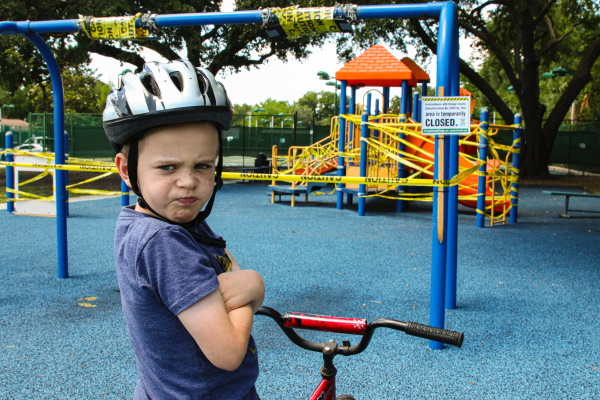Stop Telling Your Child to Calm Down: The Right Way to Handle Anger
 Dealing with an angry child can be a challenging task for any parent. It's important to understand that children get angry all the time and it's a part of their development. In this blog post, we will be discussing five things to avoid when trying to calm an angry child.
Dealing with an angry child can be a challenging task for any parent. It's important to understand that children get angry all the time and it's a part of their development. In this blog post, we will be discussing five things to avoid when trying to calm an angry child.Don't tell them to calm down
One of the first things that parents tend to do when their child is angry is to tell them to "calm down." However, developmentally speaking, this is not an effective concept for children. They do not have the same level of emotional regulation that adults have. Instead, try to remain calm yourself and model appropriate emotional regulation for your child.
Don't lose control yourself
When your child is angry, it can be easy to lose control yourself and become angry as well. However, this will only escalate the situation and lead to fireworks. Instead, try to model appropriate emotional regulation and use phrases like "Hey buddy, when you're talking to me, like I'm talking to you, we can have this conversation."
Don't tell them they should or shouldn't feel whatever they're feeling
It's important to understand that children have valid reasons for feeling angry and it's not appropriate to tell them they shouldn't feel a certain way. Instead, try to buy some time by telling them that you'll give them a minute to feel whatever they're feeling and then model appropriate emotional regulation.
Don't blame them for the situation
It's important to understand and validate children's feelings instead of blaming them for the situation. This can help to defuse the situation and show them that you understand and care about how they feel.
Don't ignore their feelings
Ignoring children's feelings can lead to more intense outbursts, instead try to understand and acknowledge their feelings. This can help to calm them down and de-escalate the situation. Additionally, by acknowledging and validating their feelings you're helping them to learn how to express and manage their emotions.
Conclusion
In conclusion, dealing with an angry child can be challenging, but by understanding their developmental stage and using the appropriate strategies, parents can help their child to calm down and feel understood. Remember to avoid telling them to calm down, losing control yourself, blaming them for the situation, ignoring their feelings and telling them they shouldn't feel a certain way. Instead, model appropriate emotional regulation, buy some time, understand their perspective, validate their feelings and acknowledge their feelings.
 Blog
Blog